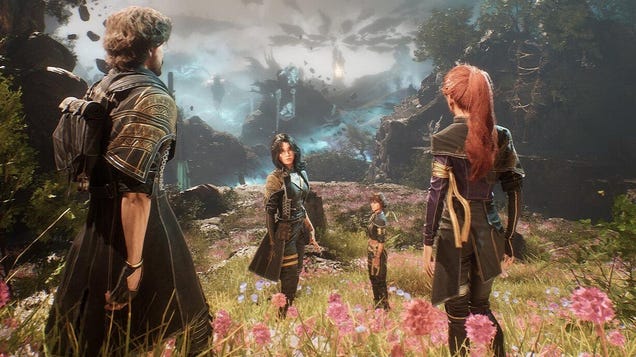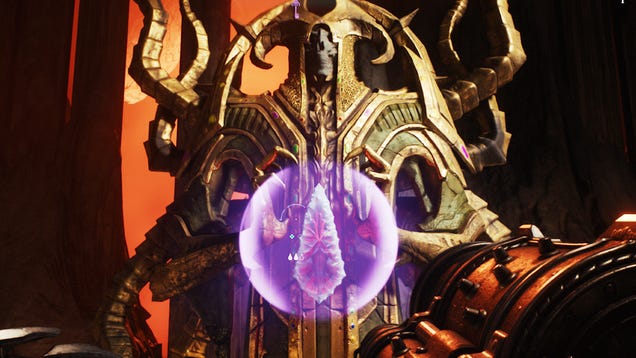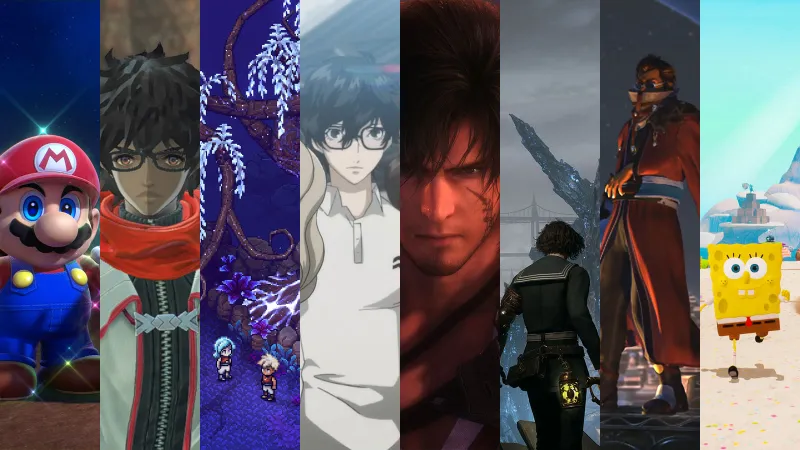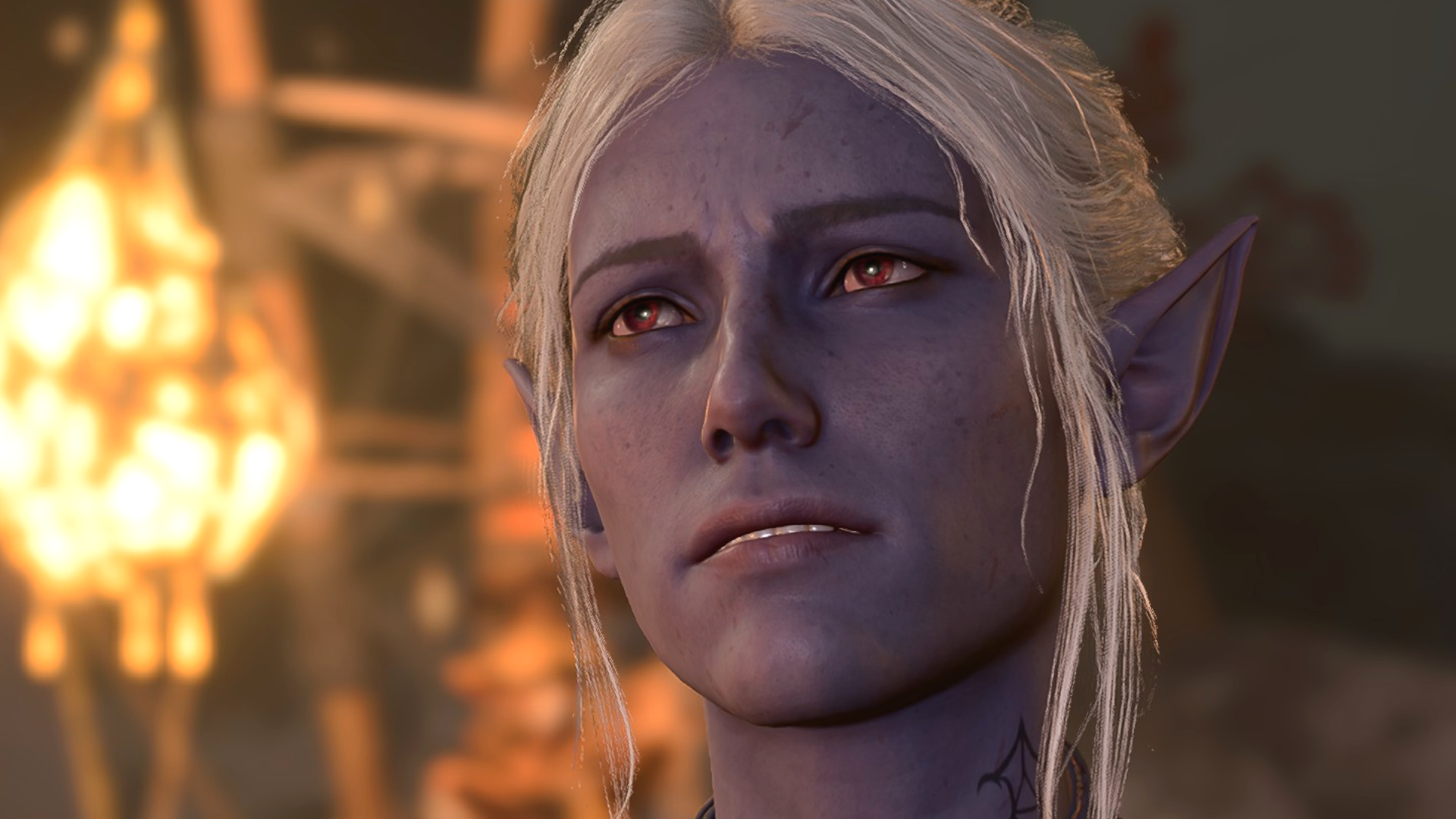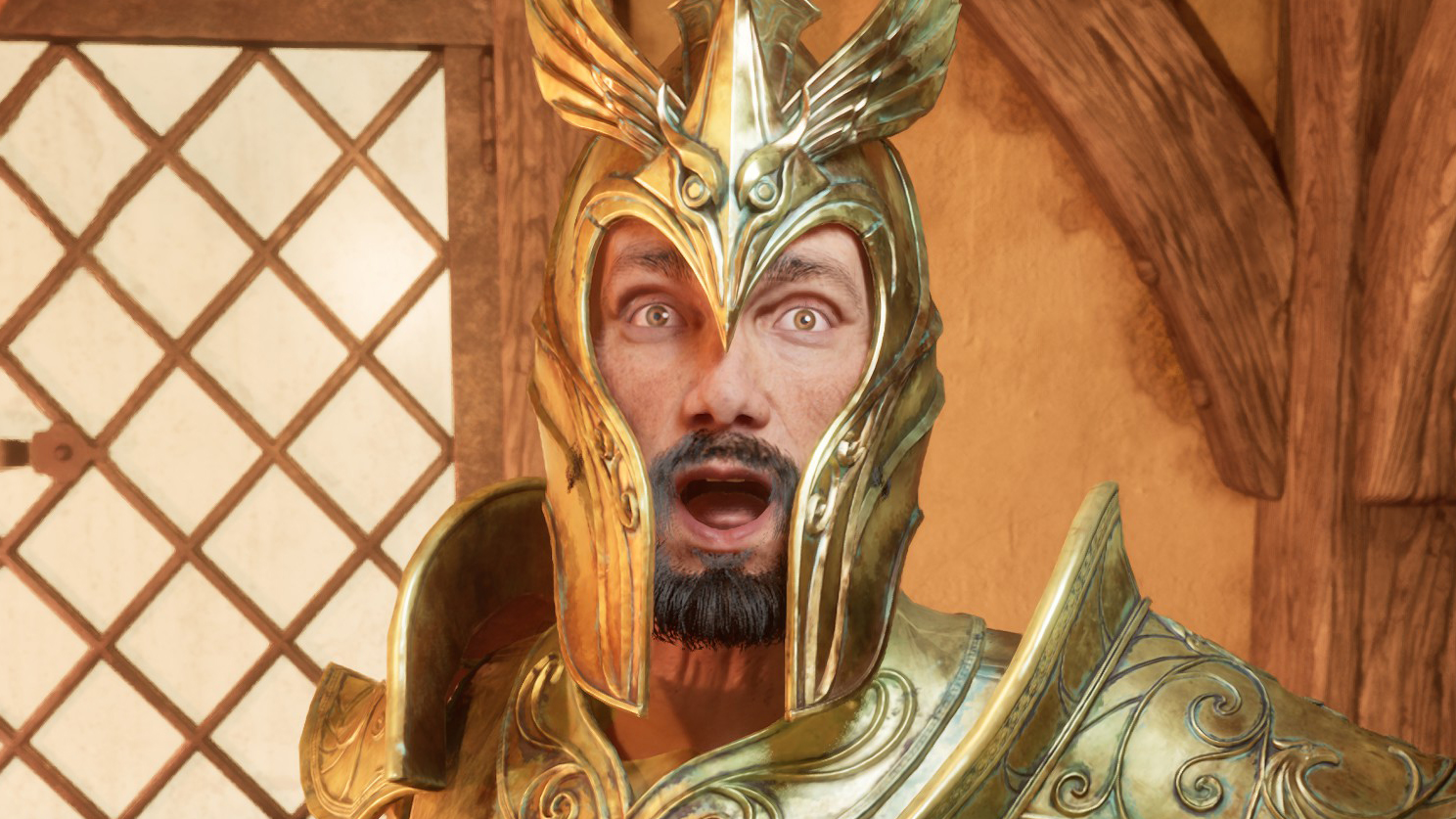
At first glance Lysfanga: The Time Shift Warrior appears to be a stylish but somewhat straightforward isometric hack ‘n’ slash in the vein of Hades, but after having some hands-on time with it at Tokyo Game Show it’s clear that there’s considerably more to it. While rewinding time has become a common function in everything from platformers to racing sims over the years, Lysfanga implements its time manipulation in a surprisingly interesting way – allowing you to basically record yourself completing a series of attacks, rewind, and then fight alongside a time-shifted duplicate of yourself who serves as a sort of deadly instant replay of your previous run.
Thus each and every enemy encounter in Lysfanga quickly blossoms into an all-out attack of the clones. As you enter each arena the action is paused for a moment, allowing you to pan the camera around the environment and plot your most efficient path of attack, a bit like at the beginning of each scrap in Mario + Rabbids. Since you’re on a 10-second timer for each version of yourself, maximizing the number of enemies that each clone can take down and shortening the distance between targets with smart uses of the boost button is essential if you want to clear each zone in the fastest total time and score the maximum number of points.
Initial battles are appropriately basic as Lysfanga eases you into its tactical, time-shifting gameplay loop. My first few fights were structurally similar, with each arena branching out in three main directions, and it was just a manner of using one version of myself to clear out the handful of beastmen to the right, then using my second clone to tackle the enemy-filled corridor to the left, before finally deploying the third iteration of my avatar to tear through the remaining nasties in the center of the arena.
Each and every enemy encounter in Lysfanga quickly blossoms into an all-out attack of the clones.
However, new enemy types and environmental obstacles were soon introduced that elevated each fight from being a simple test of how quickly I could deliver strings of combos with Lysfanga’s two-button melee system, into more of a complex strategic puzzle that I was forced to solve. Hulking enemy types toting massive shields swiveled to face me no matter which direction I struck from, meaning I had to use my first clone to attack them head-on so that they served as a distraction when I rewound time and attacked them from the rear with my second clone.
Elsewhere there were twin enemy types joined together by a tether of energy, allowing one to revive the other if it suffered any damage. Thus I had to attack one on my first assault, and then time my attack on its twin during my second run so that I could wear their health bars down simultaneously and knock them over. One-way paths, door switches, and even explosive flying bats that could be carefully knocked into crowds of enemies to take them all out in one blow were just some of the other variables I had to contend with as I tried to both thin the hordes in each arena and shave precious seconds off the clock.
It’s clear that Lysfanga’s time-shifting gameplay continues to scale in complexity and challenge. Although in the first half of my hands-on I was limited to up to four clones in the series of early game combat arenas I was faced with, in the second half I was dropped into a late-game boss fight where I was able to unleash up to 10 slash-happy doppelgangers at the same time, which made for an incredibly frantic spectacle. The boss was a towering beast on all fours capable of inflicting devastating one-shot deaths, and while the attacks of my initial clones only knocked tiny fractions of its health bar off each strike, by the time I had the full complement of decuplets hacking and slashing in concert the cumulative effect eventually enabled me to bring the beast to its knees. When I finally felled the monster after three truly intense waves of battle, I felt like giving myself a pat on the back 10 times over.
Lysfanga: The Time Shift Warrior is being published by Quantic Dream under its relatively new Spotlight publishing label, and it presents the strongest evidence yet that the French creator of Heavy Rain and Detroit: Become Human isn’t content to just deal in the sorts of cinematic, story-driven adventures that it’s built its reputation upon when it comes to the indie side of its business. Lysfanga certainly does feature a narrative involving goddesses and returning ancient evils, and I’m keen to see where it leads, but it’s clear that its innovative, incremental dungeon crawling is what could really distinguish it from the pack. Expected to launch on PC in early 2024, Lysfanga: The Time Shift Warrior seems like one to watch – or indeed re-watch.
Tristan Ogilvie is a Senior Video Editor at IGN AU. If he could turn back time he probably wouldn’t have had that one beer too many last night.



